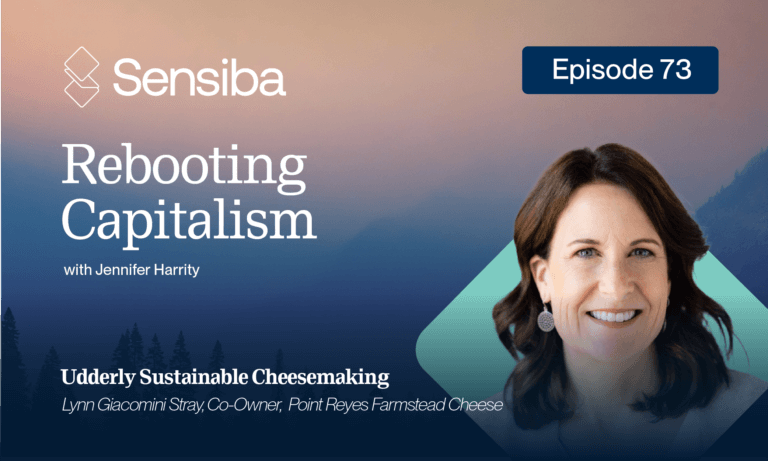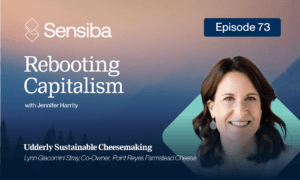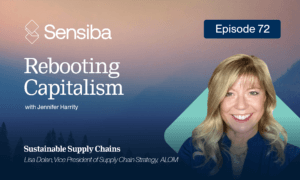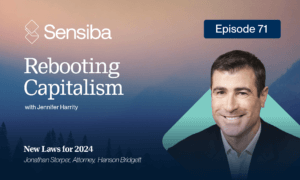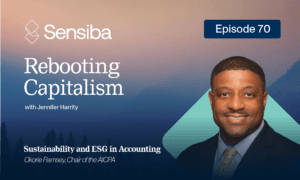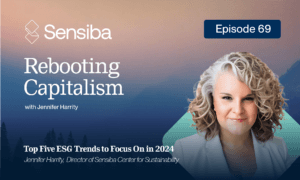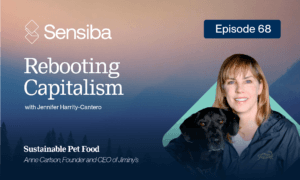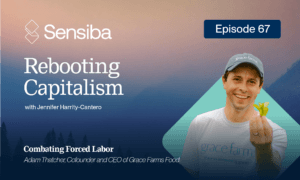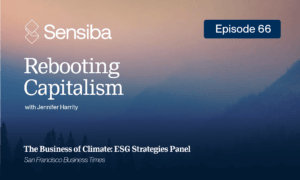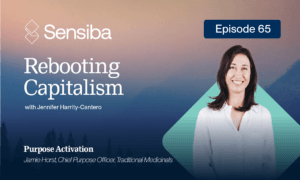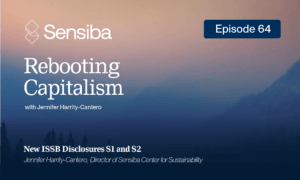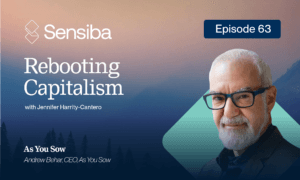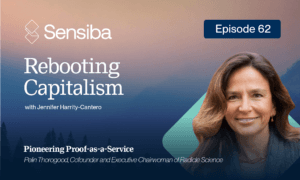Ep #73: Udderly Sustainable Cheesemaking with Lynn Giacomini Stray, Co-Owner of Point Reyes Farmstead Cheese
Ep #72: Sustainable Supply Chains with Lisa Dolan
Ep #71: New Laws in 2024 with Jonathan Storper, Attorney at Hanson Bridgett
Ep #70: Sustainability & ESG in Accounting with Okorie Ramsey
Ep #69: Top 5 ESG Things to Focus On in 2024
Ep #68: Keeping Pets and the Planet Happy with Jiminy’s CEO Anne Carlson
Ep #67: Combating Forced Labor with Adam Thatcher
Ep #66: SF Business Times – Business of Climate and Sustainability
Ep #65: Purpose Activation with Jamie Horst of Traditional Medicinals
Ep #64: New ISSB Standards S1 & S2
Ep #63: As You Sow with CEO Andrew Behar
Ep #62: Pioneering Proof-as-a-Service with Pelin Thorogood of Radicle Science
Let’s talk about your project.
Whether you need to unravel a complex challenge, launch a new initiative, or want to take your business to the next level, we’re here. Share your vision and we can help you achieve it.
